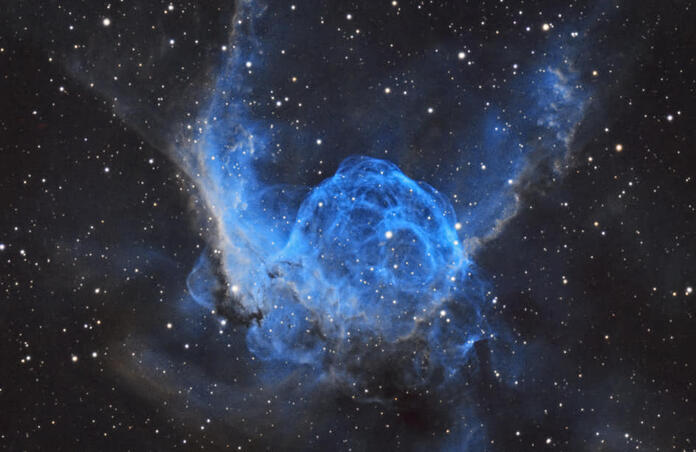Community Discussions: What got you into Astrophotography?

Is there always science behind the pictures?
In this new format, we will talk about topics that have sparked discussions in our Facebook Community!
For this first edition, let’s dig into the stories that got the Community to start the astrophotography hobby.
The curiosity behind Marco’s post and Sean’s post are our place to start.
So what’s the drive? Is it for the lovely pictures? For the science behind the incredible images? Or the mystery of the sky?
There is no standard path. Each story is different, and the journey behind this activity is personal.
“I really like the idea of digging into the mechanics of how things work.”
Originally trained as an electrical engineer, Ron ended up working in computer software and retired last year. He really likes the idea of digging into the mechanics of how things work. For him, that’s going to mean from the innards of the cameras and his telescope to the software that he uses to process images up into the sky to understand why things glow in particular colours, etc.
“I don’t even want to know how a photo came to be the way it is, I just enjoy the beauty and the emotions it brings to me.”
Tal is a software engineer with a strong interest in astrophotography. It comes naturally for him to get the feet wet in (Astro)physics.
He has no interest in dive in (Astro)physics beyond a specific base knowledge (like knowing the difference between reflection and emission nebulae, being able to separate Hɑ from OIII, etc.).
When he started photography in general, it was to have a balance to his very technical and strictly logical work and so in photography, the aesthetic aspect is much more important to him than knowing why a photon that passes the optical tube on path X triggers reaction Y on the sensor.
Of course, it takes a solid basic knowledge (and certainly more beyond that), but since he has mastered the craft, his photos are based less on technical aspects and more on a gut feeling.
He doesn’t even want to know how a photo came to be the way it is, he just enjoy the beauty and the emotions it brings to him. This is also the reason why he actually stay away from all known forums and platforms -apart from Astrobin-, because the gap between astronomers and “pure” photographers is far too big and too unbridgeable, which often manifests itself in endless discussions, where people only try to convince the other side that their own way is the better one.
“I’m 100% interested in the science behind the stunning pictures”
Lovag started diving physics as a whole a couple of years ago. Although he is keeping distance and doesn’t get his hands dirty just yet but he watched 2 years worth of videos on several topics, so he can wrap his head around relativity, gravity, some aspects of quantum mechanics and thermodynamics.
He thinks he can safely say that nobody understands quantum mechanics.
He is 100% interested.
“Then came star trek, and I was hooked.”
David was fascinated by the Apollo missions, the spaceflight program carried out by the National Aeronautics and Space Administration (NASA), which succeeded in landing the first humans on the Moon from 1969 to 1972.
Then along came Star Trek, and David was hooked.
He bought various telescopes over the years to dive into the night sky that looked so fascinating on tv and tried astrophotography for a couple of years.
“A hobby that can accommodate people of all backgrounds and interests.”
For Terry, amateur astronomy and astrophotography has room for everyone.
From those who want pictures that show the extraordinary beauty of the Universe that we inhabit, through those that want to understand the processes that create such beauty to those who wish to add to the sum of knowledge by participating in collaborations such as photometry and comet hunting.
His drive is a desire to understand how things work, but he recognizes that not everyone is the same.
Terry says amateur astronomy and astrophotography is, fortunately, a hobby that can accommodate people of all backgrounds and interests.
“I dig into the physics all the time.”
Marco, Founder of Telescope Live, is an astrophysicist by training. After he started his astronomy studies, he got into astrophotography, so he digs into physics all the time.
In shaping the vision for Telescope Live's future as the new home for astrophotography (and astronomy!), it is fascinating to hear how much the Community dig into the physics that’s behind the stunning images posted in the Gallery.
“Isn’t always some science behind every pretty picture?” Says Valter
Indeed, astrophotography is at the interface between the art of photography and the science of astronomy. We began addressing this aspect with the Academy (https://telescope.live/academy). We started to publish several articles about the night-sky objects we can see with our telescopes and some foundation in astronomy.
Image credit:
From Sean Davis post; Ngc 2359 Thor's Helmet from Pro datasets, Telescope Live
